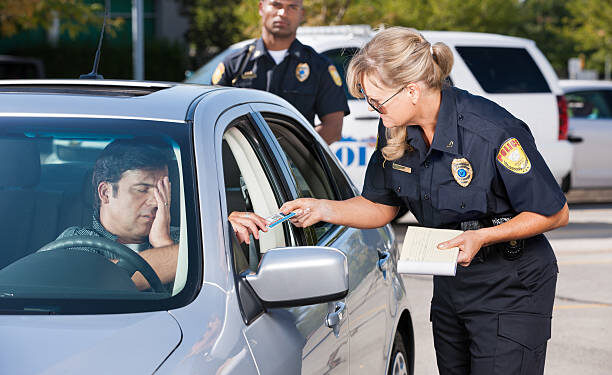Imagine you’re cruising down the highway in Philadelphia, enjoying the scenery, when you see those flashing red and blue lights behind you. You pull over, heart sinking a little, and prepare to deal with a traffic stop. The officer approaches your car, handles the routine license and registration check, but then asks to see your phone.
This scenario can be nerve-wracking. Our phones are personal havens, storing photos, messages, and a wealth of private information. The question arises: can a police officer in Pennsylvania search your phone during a traffic stop?
The answer, in most cases, is no. Pennsylvania law protects your right to privacy, and a warrant is generally required for police to access the data on your phone. This article will delve into the legalities surrounding phone searches during traffic stops in Pennsylvania. We’ll explore relevant court cases, exceptions to the warrant requirement, and your rights as a driver.
Understanding Your Rights: The Fourth Amendment
The foundation for your phone privacy during traffic stops lies in the Fourth Amendment of the U.S. Constitution. It safeguards against “unreasonable searches and seizures” by law enforcement. This means police cannot search you or your belongings without a warrant issued by a judge, or probable cause – a strong reason to believe evidence of a crime will be found.
Landmark Case: Riley v. California
The legal landscape regarding phone searches during traffic stops was significantly shaped by the 2014 Supreme Court case Riley v. California. The court ruled that due to the vast amount and personal nature of data stored on smartphones, they deserve the same Fourth Amendment protections as a physical container. This established that police generally need a warrant to search a phone’s contents.
Pennsylvania Law: Commonwealth v. Fulton
Pennsylvania courts have echoed the sentiment of Riley v. California. In the 2018 case Commonwealth v. Fulton, the Pennsylvania Supreme Court reaffirmed that law enforcement cannot access phone data without a warrant, even if the phone is not password-protected. This decision strengthens your privacy rights in the state.
Exceptions to the Warrant Requirement
While a warrant is typically needed, there are a few exceptions where police might access your phone during a traffic stop:
- Incident to Arrest: If you’re arrested for a traffic violation or another crime, the police can seize your phone as part of the arrest. However, they still need a warrant to search its contents.
- Plain View: If the officer sees incriminating evidence on your phone screen in plain view while interacting with you, they might be able to use it as evidence without a warrant. This scenario is rare and hinges on the specific circumstances.
- Consent: You have the right to refuse a search of your phone. However, if you explicitly consent, the police can access the data. It’s crucial to understand that you are not obligated to consent, and any refusal cannot be used against you in court.
Exercising Your Rights During a Traffic Stop
Knowing your rights is empowering. Here’s how to handle a situation where a police officer asks to search your phone during a traffic stop:
- Be Polite and Respectful: Maintain a calm and courteous demeanor throughout the interaction.
- Ask for Clarification: Politely inquire why the officer wants to search your phone.
- Know Your Rights: Clearly state that you do not consent to a search of your phone.
- Remain Silent: You have the right to remain silent and politely decline to answer any questions unrelated to the traffic stop.
If the officer persists after you decline consent, it’s best to refrain from arguing and request to speak with a supervisor. You can also document the encounter, noting the date, time, location, and details of the interaction.
When to Seek Legal Counsel
If the police search your phone without a warrant or your consent, and you believe your rights have been violated, it’s advisable to consult with an attorney specializing in criminal defense. They can advise you on the best course of action based on the specifics of your situation.
Conclusion
Understanding your rights regarding phone searches during traffic stops is vital. In Pennsylvania, law enforcement generally requires a warrant to access the data on your phone. Knowing the exceptions and how to politely decline a search empowers you to protect your privacy. If faced with an unreasonable search, remember to document the encounter and seek legal counsel if necessary.










